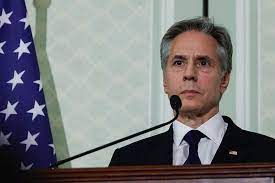
A recent survey conducted by the Central Bank of Nigeria (CBN) indicates that due to the rising inflation rate, Nigerian households are expected to allocate a significant portion of their income to food expenses over the next six months.
The survey findings come as the National Bureau of Statistics (NBS) reports an inflation rate of 33.40 percent, with food inflation surpassing 40 percent. Conducted between July 22 and 26, 2024, the CBN poll achieved a response rate of 99.7 percent, sampling 1,665 households across Nigeria’s 36 states and the Federal Capital Territory.
According to the CBN’s Household Expectation Survey, many Nigerians plan to cut back on non-essential items in the coming months. However, they intend to spend 54.9 percent of their income on food alone over the next six months. Other anticipated expenses include education (35.4 percent), transportation (30.2 percent), electricity (20.0 percent), and medical costs (12.2 percent).
Conversely, the survey reveals that Nigerians are less likely to invest in big-ticket items such as houses, cars, and household appliances. Similarly, spending on investments like landed properties and other financial ventures, as well as saving income, is not a priority for most respondents.
The report highlights the impact of the current financial pressures on households, with many expected to draw down on savings or incur debt to manage their expenses. The survey also shows that 83.7 percent of respondents perceive inflation as high, with an overall inflation index of -61.1 percent.
The breakdown of responses reveals a slightly more optimistic outlook among businesses, with an inflation perception index of -58.7 percent compared to -63.3 percent for households. Larger businesses were particularly concerned, with an index of -70.8 percent indicating significant concern over current inflation levels.
Income groups also showed varying levels of pessimism. Respondents earning between ₦150,001 and ₦200,000 had a higher inflation perception index of -66.4 percent, while those earning above ₦200,000 had a slightly less negative index at -58.3 percent, indicating a slightly better outlook on inflation.





